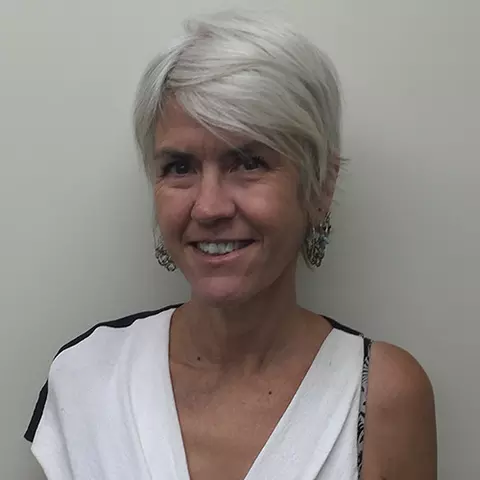Julie Nelson

Julie Nelson is the Senior Vice President of Programs at Race Forward. She was the Founding Director of the Government Alliance on Race and Equity (GARE), a joint project of Race Forward and the Othering and Belonging Institute at the University of California, Berkeley where she serves as Senior Fellow.
Nelson is the former Director of the Seattle Office for Civil Rights where she served eight years, providing both vision and hands-on support to Seattle’s Race and Social Justice Initiative, the first initiative in local government designed to dismantle institutional and structural racism and advance racial justice. She also served in other City of Seattle positions including with the Human Services Department, Administrative Services, Seattle City Light, the Office of Housing and Seattle Public Utilities, as well as other positions, including with Housing and Urban Development in the federal government and with Pima County Community Services in Tucson, Arizona.
Nelson has a master’s degree in Economics from the University of Washington and a B.S in Economics and Finance from the University of Arizona and has served on the boards of multiple nonprofits.
Nelson is driven by her passion to realize racial equity, social justice, and inclusive multiracial democracy.
Presentations from Facing Race 2022
This panel will look at the evolution of the racial justice movement with a focus on current trends. The objective is to understand how the racial justice movement is evolving, what new frameworks and analyses are being posited, and what promising practices and bright spots are informing the work of Race Forward moving forward.
Presentations from Facing Race 2018
As the U.S. approaches 2043 and a demographic tipping point, right-wing demagogues of division are advancing their vision of white minority rule. How do we think about the struggle for a democratic future? What kinds of lessons can we draw from the global crisis of neoliberalism, beset by extreme economic and social inequality coupled with the rise of religious fundamentalism, misogyny, and racial and ethnic nationalism? How do we stop the march toward authoritarianism? In this plenary, leading thinkers and organizers discuss how we can advance the promise and possibility of a true multiracial democracy.
GARE's focus is on normalizing conversations about race, operationalizing new behaviors and policies, and organizing to achieve racial equity. GARE is seeing more and more jurisdictions that are making a commitment to achieving racial equity, focusing on the power and influence of their own institutions, and working in partnership across sectors and with the community to maximize impact.
When government prioritizes racial equity, relationships with community shift to authentic engagement and the sharing of power. This workshop will highlight the experiences of jurisdictions that have been recipients of the Innovation and Implementation fund, working with community to eliminate structural racism.
There is an increasingly strong field of practice. We are organizing in government with the belief that the transformation of government is essential for us to advance racial equity and is critical to our success as a nation.
Presentations from Facing Race 2016
This session will provide an introduction to the role, responsibilities and opportunities for government to advance racial equity. It will highlight national best practices that normalize racial equity as a key value, operationalize racial equity via new policies and practices, and organize, both internally and in partnership with other institutions and the community. Across the country, we know that race predicts how well one will fare across all indicators for success, including housing, transportation, health, education, criminal justice, jobs, and the environment. We also know that actions of government created and have maintained racial inequities. To advance racial equity, the fundamental transformation of government is necessary.
The session will include an overview of shared terminology and use of racial equity tools that can be used in decisions relating to policies, practices, programs and budgets. We will focus on an “inside-outside” strategy that highlight the potential for maximizing impact. Nelson and Harris will highlight the important roles of community, government staff and elected leaders. This will be a great opportunity to join with others from across the country to leverage the power of government to advance racial equity and increase success for all of our communities.
Presentations from Facing Race 2014
Can we prevent institutional racism by institutionalizing racial equity? Can we change the way we do business in our organizations, institutions and government so that racial equity and inclusion are an operating framework? Can we be proactive instead of reactive when combating inequity? The answer is: yes! This session will highlight how government entities and community organizations are using racial equity tools and strategies to achieve fair and favorable outcomes.